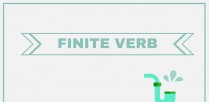Sometimes we want to say something about yesterday or the past. To recollect what we did before, we are going to study Past Indefinite.
Think about the cases when you need to use Past Indefinite. You meet your best friend a year later, and he asks you how it happened that you didn’t speak during the whole year. You don’t know what to say and try to explain everything in the past: “You know, I had a lot of work. I was busy because of my children. I did all I could so as not to meet you; just joking.”
To form the past indefinite tense we add “–ed” or “–d” in the end of the infinitive form of the verb.
- I look at you. I looked at you.
- You wash your hands every day. You washed your hands just now.
- We visit the museum today. We visited the museum yesterday.
- Brothers Auguste and Louis Lumière invented cinema.
- Leonardo da Vinci painted Mona Lisa.
- Maybe she smiled at him, and he loved her at once.
- Was it the famous love at first sight?
Oh dear! There are some irregular verbs in past. Please, don’t worry. You may not need all the irregular verbs in your everyday speech.
The cause of their departure from the norm is their frequent usage. I don’t want to tell that I always speak correctly, and someone does not, but this happened because of the changing accents and pronunciation during centuries. We will not find those ancestors who spoke too much in a wrong way.
Let’s look through the most used irregular verbs and try to learn them by heart.
- I am = was
- You, We, They are = were
- He, She is = was
This verb is so common that you should have heard it somewhere in Past Indefinite.
a) For the rest of the irregular verbs in Past Indefinite we have one form:
- I, You, We, They have = had
- She, He has = had
- I, You, We, They know = knew
- He, She knows = knew
- I, You, We, They come = came
- He, She comes = came
- I, You, We, They do = did
- He, She does = did
- I, You, We, They make = made
- He, She makes = made
- I, You, We, They go = went
- He, She goes = went
b) There are verb groups that have similar forms in the past simple:
- I, You, We, They get = got
- I, You, We, They forget = forgot
- I, You, We, They draw = drew
- I, You, We, They fly = flew
- I, You, We, They grow = grew
- I, You, We, They bring = brought
- I, You, We, They catch = caught
- I, You, We, They think = thought
c) There are verb groups that remain the same in the past:
- I, You, We, They put = put
- I, You, We, They hit = hit
- I, You, We, They cut = cut
- I, You, We, They read = read
The best thing here is that when we need to ask questions, give short or negative answers, or make a negative sentence; we use the auxiliary verb “to do” in its past form “did” (or to be when needed in its past form was/were).
- Who was that man that you spoke to? That was a friend of mine.
- Did you paint the room? Yes, I did.
- Did she wash her hands before eating? Yes, she did.
- Did I watch TV last night? No, I didn’t.
- We didn’t go to Paris yesterday. We went there the day before yesterday.
- John didn’t make this bijou that was Helene, who made it.
- Did you know what I asked?
Let’s study the rule of making negative and interrogative sentences.
1) To make a question, we take the verb to do (or to be when needed) in the past and place it before the pronoun:
- When did you write your first book? I did it when I was 19.
- Did it rain yesterday? Yes, it did.
- Did they go out last week? No, they did not.
- Did I tell you about the verb to be as an exception? No, I didn’t.
- Was he wrong? No, he was right.
2) To make a negative sentence, we take the verb to do (or to be when needed) in the past and place it after the pronoun:
- I didn’t write before I was 19.
- I didn’t think about writing before.
- I did not buy my book in the bookstore.
- I was not old enough to know how to sell my book.
That is easy, isn’t it?
Find out homework for this lesson here.






